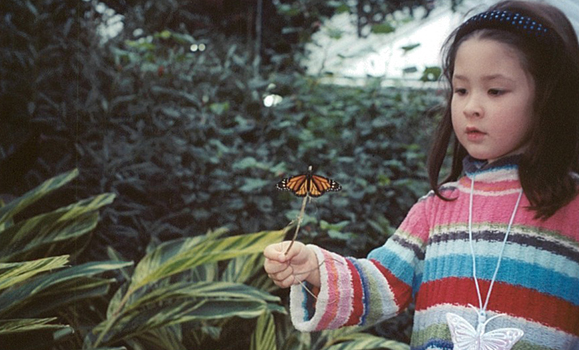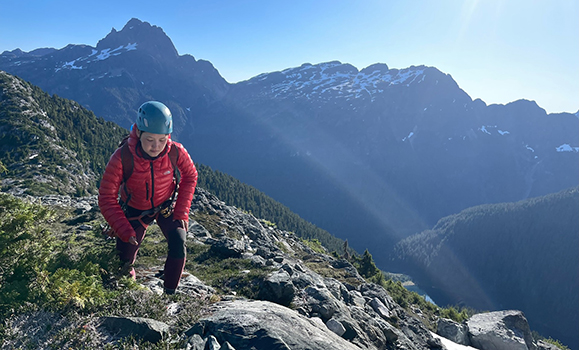On this week鈥檚 episode of Sciographies, we talk to Dr. Sian Kou-Giesbrecht, biogeochemist with the Department of Earth and Environmental Sciences听at Dalhousie University.
Dr. Kou-Giesbrecht reflects on her formative years in Waterloo, Ontario, where her academic parents in mathematics and computer science significantly shaped her intellectual curiosity.
She shares how her early fascination with ecology and climate change sparked her to study environmental science.
 Dr. Sian Kou-Giesbrecht as a child. (Submitted photo)
Dr. Sian Kou-Giesbrecht as a child. (Submitted photo)
Now an assistant professor at Dalhousie, her research focuses on nitrogen cycling in terrestrial ecosystems and its representation in terrestrial biosphere and Earth System Models.
Additionally, she discusses her commitment to enhancing diversity and inclusion in her field, emphasizing the importance of fostering a sense of belonging and addressing unconscious bias.
 Dr. Sian Kou-Giesbrecht exploring the great outdoors (Submitted photo).
Dr. Sian Kou-Giesbrecht exploring the great outdoors (Submitted photo).
Here are some excerpts from the podcast episode, edited for clarity and length.
Barclay: So, you lived in Waterloo with two academics as parents. What disciplines?
Kou-Giesbrecht: They're in math and computer science.
Barclay: Were they teaching you math or were just being regular parents?
Kou-Giesbrecht: I spent a lot of time in the back of lab meetings or conferences with, like, coloring books.
Barclay: Did you know right away that you were going be study math?
Kou-Giesbrecht: No, I started in general science. I really liked environmental science, ecology and math.
Barclay: What was your major?
Kou-Giesbrecht: I did a joint major in ecology and math.听 I really like the intersection of math and environmental science because I think it's cool to be able to take an ecosystem and explain it with math equations.
Barclay: What did you learn in graduate school?
Kou Giesbrecht: How to ask a research question and then go about and actually address the research question. Doing something that is feasible, that is within the scope of a graduate degree.
Barclay: What motivated your research?
Kou-Giesbrecht: This work is motivated by climate change and understanding there's kind of biogeochemical cycling. I've been interested in climate change since I was a kid. And that was actually probably what drove me into environmental science.
Barclay: I want to ask you about basically representation in your field?
Kou-Giesbrecht: Environmental science is one of the least racially diverse scientific fields. As a woman of colour, this is something that I've thought about quite a bit. It's really important to me that we create spaces that are more inclusive and create a sense of belonging.
Listen to the entire episode of Sciographies at 4:30 PM today on in Halifax or find it on , ,听and other popular podcasting platforms. You can also listen to previous Sciographies episodes on the same platforms and at dal.ca/sciographies.

